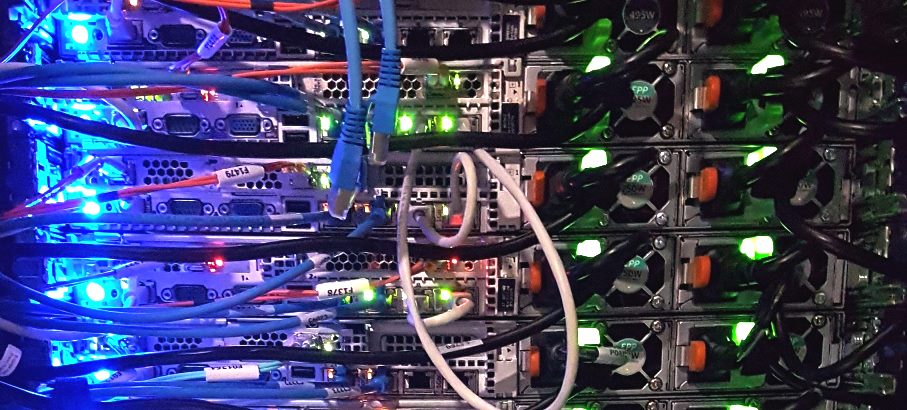How Germans Helped Destroy Emotet, A Massive Computervirus Posted by Sten on Jan 28, 2021 in Culture, Language
The virus is defeated! Well, not that one. I’m talking about a rampant Computervirus (computer virus) called “Emotet” that was responsible for 30% of Schadsoftware (malware) attacks worldwide. Here’s briefly what happened, and how Germans talk about computers and computer viruses in their language!
Was ist Emotet?
To be fair, Emotet was not really a Computervirus, but it more started as a Trojaner (Trojan) and then grew into a Botnetz (botnet) that distributed all kinds of Schadsoftware.
Here’s how the Tagesschau describes what Emotet is:
“Europol nannte die Software “eines der gefährlichsten Instrumente für Cyber-Attacken der letzten Jahre”. 2014 war “Emotet” zunächst als sogenannter Trojaner aufgetaucht.
“Die ‘Emotet’-Infrastruktur funktionierte im Kern wie ein erster Türöffner in Computer-Systeme auf weltweiter Ebene”, so die Behörde. “Das System konnte auf einzigartige Weise ganze Netzwerke infizieren, nur durch den Zugang zu ein paar wenigen Apparaten.” Über ein Word-Dokument, häufig getarnt als harmlos wirkender Anhang einer E-Mail oder auch als Link, wurde in das System eingebrochen, schilderte Europol.
Sobald der illegale Zugang gelungen war, wurde dieser an Cyber-Kriminelle verkauft. Diese konnten wiederum eigene Trojaner einschleusen, um etwa an Bankdaten zu gelangen, erbeutete Daten weiterzuverkaufen oder aber Lösegeld für blockierte Daten zu erpressen.”
(Europol called the software “one of the most dangerous tools for cyber attacks in recent years”. In 2014, “Emotet” first appeared as a so-called Trojan.
“The ‘Emotet’ infrastructure basically functioned like the first door opener in computer systems on a global level,” said the authority. “The system could infect entire networks in a unique way, just by accessing a few devices.” A Word document, often disguised as a seemingly harmless attachment to an e-mail or as a link, was used to break into the system, said Europol.
As soon as the illegal access was gained, it was sold to cyber criminals. These in turn could smuggle in their own Trojans in order to obtain bank details, to sell stolen data or to extort a ransom for blocked data.)
And now this software was taken down. That’s a huge deal, because the estimated Schaden (damage) caused by the network is 2.5 billion dollars. A Dutch- and German-led coalition of security services took it down in about a week of work with more than two years of preparation. And in Germany, the Bundeskriminalamt (BKA) (Federal Criminal Police Office), the German FBI equivalent, took over 17 Server (servers) that were connected to Emotet.
Especially since the beginning of the COVID pandemic, Schadsoftware-Attacken (malware attacks) have risen significantly. That makes sense, as many organisations built digitale Infrastruktur (digital infrastructure) so that their employees could Homeoffice machen (work from home). So a lot more Computer (computers) were exposed.
But no more!?
Well, even if this was a huge Schritt vorwärts (step forward), the takedown likely leaves a gap in the market that will be filled sooner or later. So don’t let your guard down and be careful with opening emails, attachment and links!
Some Computervirus-related Vocabulary
Here’s some Computervirus-related German vocabulary!
der/das Computervirus – computer virus (two articles? Yes, it’s weird, and unusual)
der Computer, der Rechner – computer
die Informationstechnologie (IT) – information technology (IT)
die IT-Abteilung – IT department
das IT-System – IT system
der Server – server
die Cloud – cloud
der Streamingdienst – streaming service (almost always used in the plural die Streamingdienste)
das soziale Netzwerk – social network
die sozialen Medien – social media
mit einem (Computer)Virus infizieren – to infect with a (computer) virus
die Schadsoftware – malware
der Hacker – hacker
die Sicherheitslücke – security breach
die Datei – file
die Daten – data
die persönlichen Daten – personal data
programmieren – to program
die Cybersicherheit – cyber security
das Passwort – password
ein Passwort ausspähen – to spy out a password
das Verzeichnis – directory
der E-Mail-Anhang – email attachment
Klicke nicht den Link! – Don’t click the link!
ein Passwort geheimhalten – to keep a password secret
Teilen Sie Ihr Benutzername und Passwort mit niemandem – Don’t share your username and password with anybody
Further Watching
There probably isn’t a better place to see German internet experts talk about their field than the Chaos Computer Club. This association has been at the forefront of many data and security IT issues in Germany. It is the largest European hacker association (don’t worry, they’re the good kind of hackers!). This talk explaining Emotet is very insightful how the mix of English computer terms and German go together.
Have you been affected by this Schadsoftware? Let me know in the comments below!

Build vocabulary, practice pronunciation, and more with Transparent Language Online. Available anytime, anywhere, on any device.





